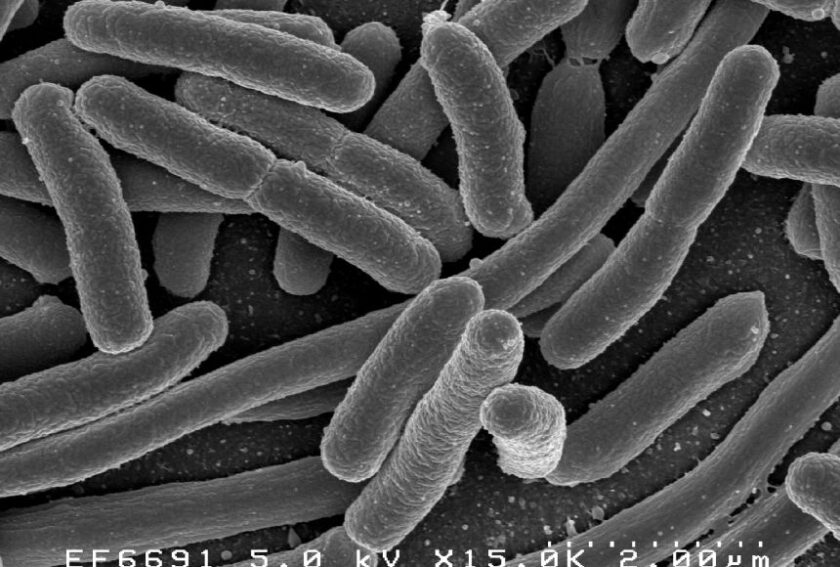E. Coli Outbreak in England: One Death Reported and 275 Confirmed Cases
The UK Health Security Agency reports one death and 275 confirmed cases in England’s ongoing E. coli outbreak, linked to supermarket sandwiches.
UK, Bollywood Fever: The UK Health Security Agency (UKHSA) has reported one death in connection with the ongoing E. coli outbreak in England. The outbreak has resulted in 86 hospitalizations, according to figures released last week. The number of confirmed cases has now risen to 275 as of June 25, with 19 additional cases recently identified.
The outbreak is believed to be linked to some supermarket sandwiches containing salad leaves. In response, several food manufacturers have issued recalls for affected products as a precautionary measure.
E. coli bacteria are a diverse group that typically reside in the intestines of humans and animals. While many types of E. coli are harmless, others can cause serious illness. The specific strain involved in this outbreak, Shiga-toxin-producing E. coli (STEC) O145, is known for its ability to attack the gut lining, leading to severe health issues.
The UKHSA continues to investigate the source of the contamination and advises the public to stay informed about food recalls and safety guidelines to prevent further spread of the bacteria.

What is E. coli?
Escherichia coli (E. coli) is a type of bacteria that naturally lives in the intestines of humans and animals. While many strains of E. coli are harmless and even beneficial for digestive health, some can cause severe illness. Here’s a comprehensive overview of E. coli:
Types of E. coli
- Non-pathogenic E. coli:
- These strains are generally harmless and play a role in maintaining gut health.
- They aid in digestion and help in producing vitamin K.
- Pathogenic E. coli:
- These strains can cause illness, ranging from mild to severe.
- Common pathogenic strains include:
- Enterotoxigenic E. coli (ETEC): Causes traveler’s diarrhea.
- Enteropathogenic E. coli (EPEC): Often affects children in developing countries, causing severe diarrhea.
- Enteroaggregative E. coli (EAEC): Associated with persistent diarrhea.
- Enteroinvasive E. coli (EIEC): Causes an illness similar to shigellosis, marked by bloody diarrhea.
- Shiga toxin-producing E. coli (STEC): Includes the well-known O157strain, which can lead to severe foodborne disease.
Shiga Toxin-Producing E. coli (STEC)
- STEC O145: The specific strain involved in the recent outbreak in England.
- These strains produce Shiga toxins, which can damage the lining of the gut.
- Symptoms of STEC infection include severe stomach cramps, diarrhea (often bloody), and vomiting. Some cases can lead to more severe conditions like hemolytic uremic syndrome (HUS), which can cause kidney failure.
Transmission
- E. coli can be transmitted through contaminated food and water, person-to-person contact, or contact with animals or their environments.
- Common sources of E. coli outbreaks include:
- Undercooked ground beef.
- Raw milk.
- Contaminated raw vegetables and fruits.
- Contaminated water.
Prevention
- Practicing good hygiene, such as washing hands thoroughly with soap and water.
- Cooking meat to safe temperatures.
- Avoiding unpasteurized dairy products.
- Washing fruits and vegetables thoroughly.
- Avoiding cross-contamination in the kitchen by using separate cutting boards for meat and vegetables.
Treatment
- Most E. coli infections resolve without specific treatment.
- Hydration is crucial to prevent dehydration from diarrhea.
- In severe cases, hospitalization may be required, especially if complications like HUS develop.
- Antibiotics are not recommended for treating STEC infections as they can increase the risk of HUS.
Understanding E. coli and its potential risks can help in preventing infection and managing outbreaks effectively.
Read More about it :
- Centers for Disease Control and Prevention (CDC)
- World Health Organization (WHO)
- Mayo Clinic
- National Health Service (NHS)
These sources provide detailed information on the types, transmission, symptoms, prevention, and treatment of E. coli infections.
Disclaimer: The information provided in this response is for general informational purposes only. While efforts have been made to ensure the accuracy of the content, it should not be construed as professional medical advice. For specific medical concerns, diagnosis, or treatment, please consult a licensed healthcare provider or professional. The sources mentioned are reputable public health organizations, but always refer to the most current guidelines and recommendations from health authorities. This content is not intended to replace professional advice, diagnosis, or treatment.
Also Read, North Korea Claims Successful Missile Test; South Korea Dismisses as “Deception”
Human Remains Found Near Missing Texas Student Caleb Harris’ Apartment
Police Name Victims in Staffordshire Double-Murder as Lauren Evans and Daniel Duffield












